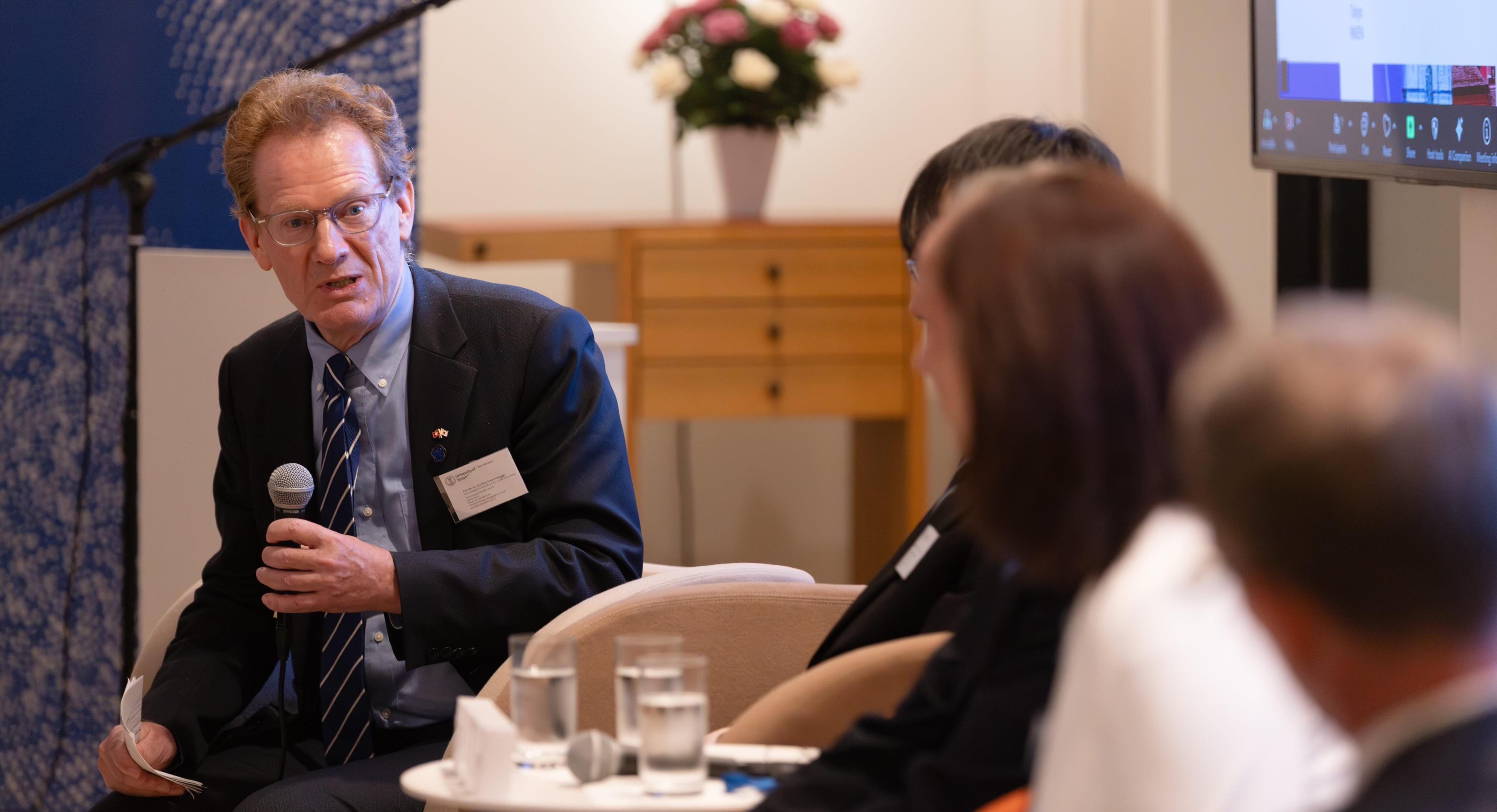UZH Builds Bridges with Japan on Shared Values
University of Zurich (UZH) researchers and Japanese experts came together last week to seek answers to one of our era's most pressing questions: “How do we ensure AI serves humanity?” In two events co-organized by UZH, at the Swiss Embassy in Tokyo and in the Swiss Pavilion at Expo 2025 in Osaka, researchers, policymakers, and industry experts gathered to exchange on how AI is reshaping society, how best to govern its use, and the importance of cross-cultural and cross-sector exchange.

Shared Swiss–Japanese Perspectives
Both countries are committed to ensuring that AI serves society and reflects core values of trust, safety and dignity, emphasized UZH Vice President Prof. Christian Schwarzenegger. He pointed to the challenges surrounding the social impact of automation, such as workforce reskilling, and highlighted the importance of Swiss-Japanese collaboration, as global innovation leaders, in tackling these challenges together.
Florent Thouvenin, UZH Professor for Information and Communications Law, addressed copyright law issues and compared Swiss and Japanese approaches to AI regulations. He also presented the AI Policy Observatory, a UZH initiative, developed in collaboration with Japanese partners, which provides policy- and decision-makers with clear, concise and comparative insights into global AI regulation across various jurisdictions.
Michael Krauthammer, UZH Professor of Medical Informatics, used examples from his ongoing collaboration with Kyoto University on radiology diagnostics tools to illustrate how AI is helping doctors improve accuracy, reduce costs, and even enhance empathy in patient care. He emphasized that rather than replacing doctors, AI is likely to act as a trusted companion, supporting clinicians in complex decision-making and freeing up time for human interaction.
Kyoto Comes to Zurich
In February 2026, UZH will host its strategic partner, Kyoto University, in Zurich for a symposium that will bring together over forty researchers and senior leaders from Kyoto University with their counterparts at UZH. Under the theme "Improving the Quality of Life – What We Can Learn From Each Other," the symposium will offer opportunities to collaborate on ongoing projects, address emerging issues, and strengthen the long-standing partnership between the two universities.
This collaboration reflects Japan's position as Switzerland's most important partner in science and technology in Asia. To scale such partnerships across the Asia-Pacific region, the University of Zurich hosts the Leading House Asia Pacific, Switzerland's bilateral science and technology cooperation program, mandated by the State Secretariat for Education, Research and Innovation (SERI). Through this role, UZH will continue to nurture and expand researcher-led initiatives that establish enduring, high-impact partnerships in research, education and innovation.
Read the full article on the events in Japan onUZH News.
Raphael Kunz & Aspasia Daskalopoulou




